Basic health insurance is mandatory in Switzerland and covers your essential medical needs.
Standard
- A specialist can be consulted without prior approval from the insurance and without any restrictions.
- It is the most expensive insurance model.
HMO
- Compared to the standard model, premiums are 15% to 20% lower.
- Limited choice of doctors — you must first visit an HMO-affiliated doctor
Family doctor
- Lower premiums than the standard model.
- There is a dependency on the family doctor. Free choice of doctors is not available.
Telmed
- Premiums are 14% to 25% lower than the standard model.
- A remote diagnosis may be inaccurate or incorrect. In some Telmed models, the choice of doctors is further restricted.
Cost sharing in Swiss basic health insurance
The cost sharing in mandatory basic health insurance in Switzerland consists of several elements: monthly premiums, deductible, co-payment and a possible hospital contribution.
Monthly Health Insurance Premiums
The amount of monthly premiums in basic insurance depends on several factors:
- Health insurance provider
- Insurance model (e.g. family doctor model, Telmed, HMO)
- Selected deductible
- Age and place of residence of the insured person
Applying for Premium Reduction
People with low income can apply for a premium reduction from the responsible canton. The canton then covers part of the premium costs — an important financial relief in case of high healthcare expenses.
Deductible: Annual Personal Contribution
The deductible is the amount that insured persons must pay themselves per calendar year before the health insurance covers any costs. The deductible amount can be selected:
- Children: CHF 0 to CHF 600
- Adults: CHF 300 to CHF 2,500
The higher the deductible, the lower the monthly premiums usually are.
Co-payment: Share of Treatment Costs
After exceeding the deductible, the health insurance covers 90% of further treatment costs. The remaining 10% is paid by the insured person — up to a legally defined maximum amount:
- Adults: maximum CHF 700 per year
- Children: maximum CHF 350 per year
Hospital Contribution for Inpatient Stays
For a hospital stay, an additional hospital contribution of CHF 15 per day is charged. The following are exempt:
- Children
- Young adults in education
- Women during pregnancy and during the postpartum recovery period
Cancellation & switching health insurance
A change of mandatory basic health insurance in Switzerland is only possible as long as you have your residence in Switzerland. The cancellation of your current health insurance can only take place in connection with a switch to a new insurance provider.
To ensure a smooth switch of health insurance by 01.01.2025, the following requirements must be met:
- The cancellation must have been received by your current health insurance provider no later than November 30, 2024.
- Ideally, send the cancellation letter by registered mail in mid-November to be on the safe side.
- At the same time as the cancellation, you must register with the new health insurance provider.
- The cancellation will only be accepted if your current health insurance provider receives a confirmation of registration from the new insurance company.
- A switch is not possible if there are outstanding premiums or unpaid costs with your old health insurance provider — even if the cancellation was submitted on time.
Planning your health insurance switch in good time can significantly reduce your healthcare costs. Therefore, be sure to pay attention to deadlines and requirements.
Benefits of basic health insurance in Switzerland
Benefits of Basic Health Insurance in Switzerland
Mandatory health care insurance (basic insurance) in Switzerland covers the costs of medically necessary examinations, diagnoses, and treatments — minus the statutory cost sharing. The covered benefits are clearly defined in the Federal Health Insurance Act (KVG).
Treatment by a Doctor
Basic insurance covers all medical treatments. Doctors are required to inform patients whether a service is covered by basic insurance. This also includes doctor-prescribed therapies and nursing services such as:
- Physiotherapy
- Spitex (home care)
- Therapeutic bathing
- Nutritional counseling
- Occupational therapy
- Speech therapy
- Psychotherapy (under certain conditions)
Alternative Healing Methods
Complementary medical services such as homeopathy or traditional medicine are only covered by basic insurance if provided by a properly trained physician.
Hospital Stay
Outpatient, inpatient and emergency stays in the general hospital ward are covered by basic insurance.
Nursing Costs
Basic insurance covers nursing costs, for example through Spitex, but only with a doctor’s prescription.
Preventive Healthcare
The following preventive measures are included in the benefits of basic insurance:
- Vaccinations according to the Swiss vaccination schedule of the Federal Office of Public Health (excluding travel vaccinations)
- Health and developmental check-ups for preschool children
- Gynecological check-ups
- Breast cancer screening (mammography)
- Screenings for colorectal cancer
Pregnancy and Maternity
Basic insurance includes the following benefits related to pregnancy and childbirth:
- Seven routine check-ups during pregnancy
- Two ultrasound exams (unlimited for high-risk pregnancies)
- Screening for trisomy 13, 18, and 21
- Childbirth preparation course (insurance contribution CHF 150)
- Delivery at hospital or at home
- Postpartum check-up between weeks 6 and 10 after birth
- Up to three breastfeeding consultations
- Care by a midwife or nurse in case of complications after childbirth
Vision Aids (Glasses and Contact Lenses)
Children and adolescents up to 18 years old receive a subsidy of up to CHF 180 per year from basic insurance for eyeglasses or contact lenses — provided there is a doctor’s prescription.
Dental Treatments
Costs for dental treatments, such as check-ups, braces, or corrections, are not covered by basic insurance. Exceptions apply for severe illnesses (e.g. cancer or serious accidents) where no other insurance applies. A private dental supplementary insurance is recommended to close this gap.
Transport and Rescue Costs
Basic insurance contributes to transport costs if an ambulance transport is medically necessary. It covers 50% of the costs up to a maximum of CHF 500 per year. Mountain rescues are also reimbursed at 50% up to CHF 5,000, but only in life-threatening situations. Cost sharing applies only within Switzerland.
Treatments Abroad
Medically necessary treatments in EU and EFTA countries are covered by basic insurance. Outside these countries, basic insurance only pays for absolute emergencies. Hospital stays abroad are usually reimbursed up to 90%. Therefore, it is strongly recommended to take out additional travel or international health insurance for stays abroad.

